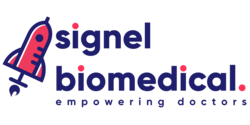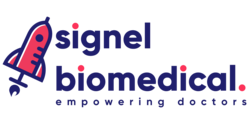Affordable Dental Laser Options for Small Dental Clinics in India
According to a recent study conducted by Gupta et al in India, only 15.4% of dental surgeons use lasers in their dental practice, and 75.7% are interested in using them. It is critical to have a thorough understanding of laser use, different types of lasers, and which type of laser is suitable for each case to use it safely and effectively in various dental fields.1
Dive into the advancements of laser dentistry in India and learn about the use of lasers in your dental practice through our latest blog!
What Is Laser Dentistry?
Laser dentistry is the branch that uses lasers to treat dental conditions and diseases in patients. LASER stands for 'Light Amplification by the Stimulated Emission of Radiation'. Miaman used it for the first time in dentistry in 1960.2 The light energy produced by the device is concentrated into an extremely narrow beam. When this laser light comes into contact with tissue, it reacts, causing the tissue to be removed or shaped.
Lasers are used in various dental procedures:
Hard Tissue Laser Dentistry
Tooth Preparation
Dental Fillings
Procedures for Tooth sensitivity
Soft Tissue Laser Dentistry
Crown Lengthening
Treatment of Gummy Smile
Removal of Soft Tissue Growths (Epulis)
Removal of Inflamed and Hypertrophic Tissue
Frenectomy
Other applications of Laser Dentistry
Benign Tumor Resection
Oral Ulcer Management
Regeneration of Nerves
Exposure of Unerupted and Partially Erupted Teeth
Teeth Whitening
Treatment for Temporomandibular Joint (TMJ)
Nowadays, patients frequently choose laser dentistry over conventional dental procedures because it is more comfortable, efficient, and affordable.
Types Of Dental Lasers
There are several ways to categorize lasers used in dentistry practices:
- Depending on the type of lasing medium used—gas or solid
- Suitability of the tissue for the application—hard tissue and soft tissue lasers
- Based on the wavelength range

Image source: Parker, S.; Cronshaw, M.; Anagnostaki, E.; Mylona, V.; Lynch, E.; Grootveld, M. Current Concepts of Laser–Oral Tissue Interaction. Dent. J. 2020, 8, 61. https://doi.org/10.3390/dj8030061. Available at: https://www.mdpi.com/2304-6767/8/3/61Soft tissue lasers are used to cut gums, oral mucosa, and other oral tissues in the surrounding area, while hard tissue lasers are used to cut tooth structures. We must utilize different lasers because different tissues absorb light at different wavelengths.
- CARBON DIOXIDE LASER (CO2 laser)
Because of the high affinity of this laser wavelength for water, hemostasis, and soft tissue clearance can be achieved quickly with shallow penetration depths. They are larger, expensive, and have hard tissue damage, thus frequently used nowadays.
- YTTRIUM ALUMINUM GARNET LASER NEODYMIUM (Nd: YAG laser)
Due to the pigmented tissue's strong absorption of the Nd: YAG wavelength, this surgical laser is useful for cutting and coagulating oral soft tissues while maintaining good hemostasis. They are a little pricier than diodes and a bit larger, mostly used for soft tissue treatments.
- ERBIUM LASER
Er, Cr: YSGG (yttrium scandium gallium garnet) lasers and Er: YAG (yttrium aluminum garnet) lasers are the two commonly used Erbium lasers. Of all the dental laser wavelengths, the erbium wavelengths have the largest absorption of water and the most affinity for hydroxyapatite. As a result, it is the preferred laser for treating dental hard tissues. Because a large portion of dental soft tissue is water, erbium lasers can be employed for soft tissue ablation in addition to hard tissue operations. These lasers can be used for almost every surgery that can be completed with conventional instruments, including exposure of teeth beneath bone, hard-tissue crown lengthening, filling or crown preparation, and recontouring of bone.
- DIODE LASER
Diode lasers are the least expensive dental lasers. They produce very competent results and are relatively portable, making them easy to transport. The main absorbers of all diode wavelengths are hemoglobin and tissue pigment, or melanin. On the other hand, the water and hydroxyapatite in the enamel absorb them poorly. Aesthetic gingival recontouring, frenectomies, exposing of soft tissue impacted teeth, soft tissue crown lengthening, excision of inflammatory and hypertrophic tissue, and photostimulation of the aphthous and herpetic lesions are some of the specific application areas.
How To Find The Best Laser For Your Dental Practice?
Diode and Erbium are the two most commonly used lasers in Indian dental practice.
Once invested, they are affordable and useful for a variety of dental treatments. The most important things to consider when buying a dental laser are your budget and the procedures you intend to utilize it for. Once you've decided what you want to use your laser for, you may focus your search to just include the lasers that are most appropriate for that use. When considering the addition of a laser to your clinic, you should also consider the training that will be necessary to prepare you to treat patients with the laser. While there are many possibilities for laser dentistry training, it is equally crucial to purchase a laser system from a dealer that will stand behind its technology and guarantee that you are not only familiar with operating the system but also with optimizing its use for your patient’s needs in your clinic.
Here is a comparison table of the dental lasers currently in the market:
| Serial Number | Item |
Applications | Average Price* |
| 1 | NV Microlaser | All Soft-Tissue Applications | ₹2,30,000 |
| 2 | SOL Portable | Soft Tissue Surgery Periodontal Hygiene |
₹3,00,000 |
| 3 | SiroLaser Blue |
Implantology Periodontology Endodontics Restorative Dentistry Desensitization |
₹ 5,50,000 |
| 4 | Pioon H1 |
Soft tissue surgery Periodontics Endodontics Teeth whitening Bleaching Aphthous ulcers Low-level laser therapy (LLLT) Biostimulation
|
₹3,50,000 |
| 5 | Zolar Photon Plus |
Periodontal disease Remove tooth decay Teeth whitening Excision of Granulation Tissue & Fibroma Haemostasis &Coagulation
|
₹4,02,500 |
| 6 | Biolase iLASE |
Gum contouring Crown lengthening Gum lightening Laser teeth whitening Biological stimulation Periodontal plastic surgeries Impacted teeth eruption
|
₹2,10,000 |
| 7 | Biolase EPIC X |
Gum surgery Tooth decay removal Teeth whitening TMJ & other Myofacial disorders
|
₹4,20,000 |
| 8 | AMD Picasso |
Periodontal treatment Soft tissue surgery Frenectomies Laser whitening Hygiene treatments
|
₹4,19,700 |
| 9 | Woodpecker LX 16 Plus |
Dental soft tissue surgery Endodontic sterilization Periodontal sterilization Peri-implantitis Low-intensity laser therapy Oral ulcers Teeth whitening
|
₹3,36,000 |
| 10 | Soga iLaser1 |
Soft tissue surgery Biostimulation Teeth whitening. Pain reduction in TMJ Wound healing
|
₹3,15,000 |
*Prices may vary depending on the dealer and retailer
Training And Certification In Lasers
You can take a certification course or training once you know what kind of laser you'll be employing and what it can do clinically. To increase skill and proficiency, the course should include hands-on instruction and theoretical tutorials. The majority of certifications offer a basic understanding, but since laser technology is constantly developing, it is strongly advised that you enroll in as many laser trainings and webinars to stay up to date on the latest methods and uses for the device. India Dental Association (IDA) offers a fellowship course in laser dentistry. 4 These days, a lot of private dental colleges have started offering laser dentistry courses that can be taken both online and offline. These are essentially a few short-term courses, ranging from three to twelve months.5,6 Postgraduate diploma courses
(PGD Laser Dentistry) of one to two years are also offered by many dental schools in India. Anyone who has completed a Bachelor of Dental Surgery (BDS) is eligible to take these courses.
What Are The Pros and Cons Of Laser Dentistry?
Laser dentistry is an effective replacement for tooth drilling and surgical procedures because it is comparatively painless and has few adverse effects on the teeth and oral tissues.
Pros
- Sometimes less painful than expected, therefore less anaesthesia is required.
- Potentially alleviate anxiety in people who find the dental drill uncomfortable.
- Reduce edema and bleeding during soft tissue treatments.
- Remove cavities while leaving the majority of healthy teeth intact.
- Lasers offer shorter healing time and faster recovery (minimally invasive).
Cons
- Teeth that already have fillings cannot be treated with lasers.
- Many routine dental treatments cannot be performed using lasers. For instance, cavities between teeth, around previous fillings, and huge cavities that need to be prepped for a crown cannot be done with lasers. Lasers cannot be used to prepare teeth for bridges or remove broken crowns or silver fillings.
- Even with laser fillings, traditional drills could still be required for filling shaping, bite adjustment, and polishing.
- Lasers do not eliminate the need for anesthesia.
- Because a laser is significantly more expensive than a dental drill, laser treatments are often more expensive to patients as well.
Conclusion
Dental lasers are now well-established instruments. The precision of the laser allows for minimal damage to surrounding tissues, contributing to a more comfortable experience for the patient. If you are a dentist who is thinking of investing in a new dental laser for your practice, visit https://www.signelbiomedical.com/or call +91 8919117478 .Experience a revolutionary approach to oral health at your dental practice, where advanced laser treatments redefine your dental skills!.
FAQ’s
- How does a dental laser work?
Dental lasers are made up of an energy source, an active lasing medium, and two or more mirrors. The target tissue is reached by the laser's narrow, focused beam of light during the treatment via a hollow waveguide, focusing lenses, a cooling system, and fiber optic cable. Tissue can be removed or sculpted because the light causes a reaction when it comes into contact with it. - Is laser dentistry right for me?
Laser dentistry is a cutting-edge technology that is revolutionizing the dental industry. If you are looking for a more efficient and less invasive way to practice dentistry, then laser dentistry may be right for you. - Are there any risks or side effects associated with laser dentistry?
Laser dentistry is extremely safe, minimally intrusive, and precise. Mild discomfort and some edema are possible side effects, no major issues have been documented with the use of dental lasers. - Is laser dentistry suitable for everyone?
While laser dentistry offers many benefits, not all procedures may be best addressed with it. If you are a patient, carefully consider whether or not to proceed with laser dental treatments after discussing all of your alternatives with your dentist. - Can dental lasers be used on children?
Dental lasers are safe and effective for use in children. The use of lasers for soft tissue and dental restorative procedures on children, infants, and adolescents—including those with unique healthcare needs, is acknowledged by the American Academy of Pediatric Dentistry (AAPD).
Sources:
- Gupta, Vineeta; Mishra, Supriya; Sangha, Kuldip Singh; Rahman, Waheda; Goswami, Varsha; Thakkar, Vallabh. Assessment of Knowledge and Practice of Lasers Among Dental Professionals of Central India – An Online Questionnaire-Based Survey. Journal of Indian Association of Public Health Dentistry 20(1):p 100-105, Jan–Mar 2022. doi: 10.4103/jiaphd.jiaphd_76_21
- Verma SK, Maheshwari S, Singh RK, Chaudhari PK. Laser in dentistry: An innovative tool in modern dental practice. Natl J Maxillofac Surg. 2012 Jul;3(2):124-32. doi: 10.4103/0975-5950.111342. PMID: 23833485; PMCID: PMC3700144.
- https://www.dentalcompare.com/Dental-Equipment/4406-Dental-Lasers/
- https://www.ida.org.in/AboutUs/Details/AboutIDA
- https://collegedunia.com/courses/laser-dentistry
- https://www.laserdentistry.org/certification













